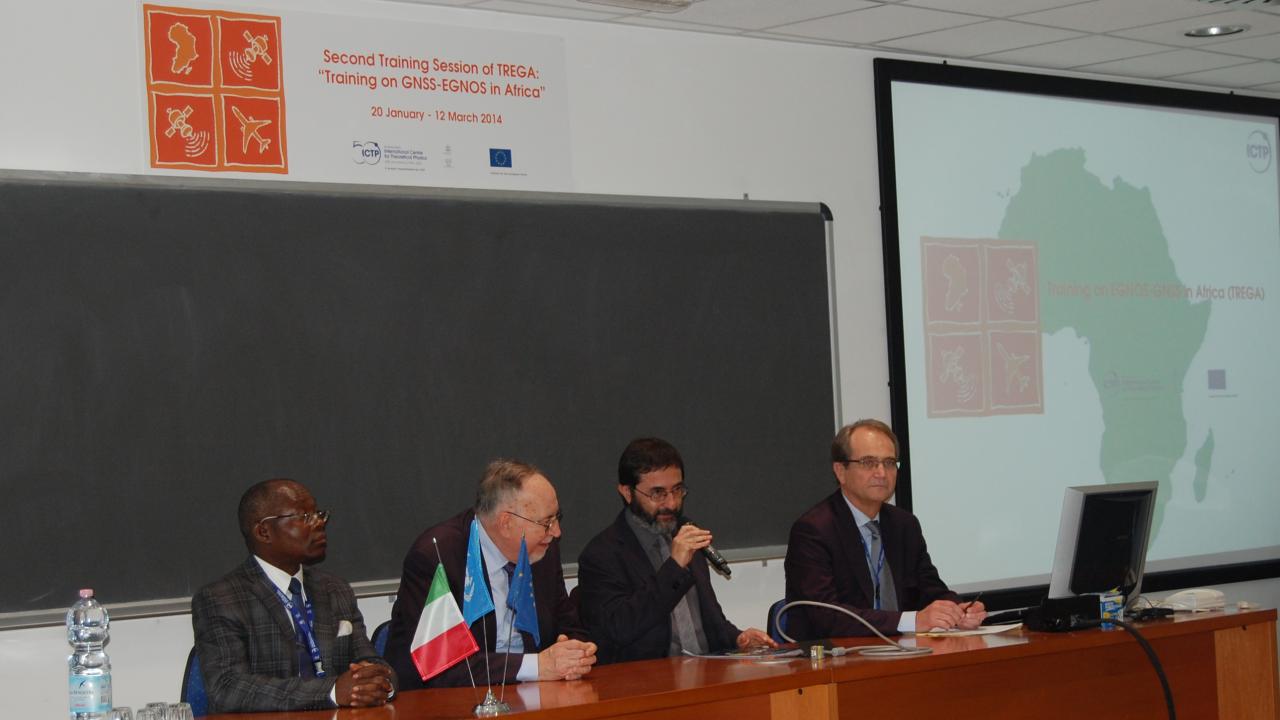
Better safety and efficiency are the urgent needs of the African aviation sector, and nine aviation professionals (seven from Africa) have gathered at ICTP to participate in the second TREGA (Training EGNOS GNSS in Africa) session. TREGA, a joint project between the European Commission (EC) and ICTP, began in 2013 with the aim of improving Africa's aviation sector. Ten participants were already trained in the first session, and there still is a long way to go in making African skies safer.
Adiron Alberto, senior policy officer in the African Union Commission's Air Transport Department of Infrastructure and Energy, who was at the opening of the second training session, says "African aviation is facing two main challenges. One is the low pace of growth in the air connectivity within Africa and the second challenge, which is more crucial, is the high rate of accidents." He points out that the rate of air accidents in Africa is 10 times more than the world average. This statistic is especially concerning because Africa accounts for just 3% of the global air traffic.
According to Alberto, a programme like TREGA is exactly what Africa needs because the impact is direct. "In just one year, TREGA has done tremendous work for Africa. Of the 10 participants who were trained last year, five are now employed in Africa-wide institutions and the five others are working with their respective civil aviation authorities," he says.
Sandro Radicella, head of ICTP's Telecommunications/ICT for Development Laboratory, agrees. "Each TREGA session is intensive, the on-going one is for eight weeks, and also the modules are specially designed to address the specific technical problems of the African region."
Radicella says that ICTP perfectly fit the European Commission's criteria for hosting TREGA not only because of the Centre's numerous initiatives in the African region but also because of its experience in working with Global Navigation Satellite Systems (GNSS).
At the inaugural meeting held on 20 January 2014, ICTP Director Fernando Quevedo said that although ICTP is a theoretical physics institute, it has been evolving over the years and responding to the scientific needs of the developing world, and TREGA is a step in that direction.
The second TREGA session will run till 12 March 2014, and the participants are expected to gain better knowledge about GNSS and promote the use of European Geostationary navigation Overlay Service (EGNOS) in Africa.
















